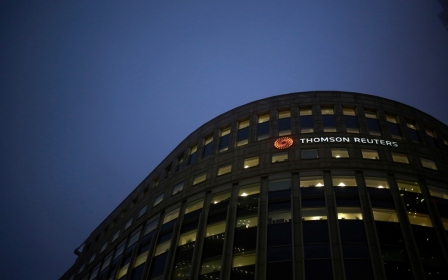Muslim charity denied funds following claims it sent money to Syria

A UK-based charity was barred from accessing thousands of dollars raised via an American fundraising platform after it was accused of sending money directly to Syria.
Muslims in Need, a volunteer-run charity, was denied access to funds, following claims by US-based technology company Stripe that the charity had breached US treasury rules.
Stripe is a platform that enables individuals and businesses to receive payments over the internet. Charities and NGOs like Oxfam and UNICEF also use STRIPE to raise money. Both groups have ongoing operations inside Syria.
Approximately $129,283 (£100,000) worth of donations raised by Muslims in Need via Stripe during the last ten days of Ramadan in June, a peak period for charities globally, was blocked by the US company.
The company accused Muslims in Need of breaking the rules set out by the US Office of Foreign Asset Control (OFAC) by sending money to Syria. Damascus was put on the OFAC sanctions list in 2011 following the outbreak of the Syrian civil war.
In email correspondence seen by Middle East Eye, Stripe told Muslims in Need it had concerns over a campaign that “may have something to do with Syria”.
But trustees from the charity responded to Stripe’s requests and told the US company it sends aid to Syria via a Turkish-based partner charity, a common practice for NGOs sending assistance to the war-torn country.
Despite clarifying its aid delivery process, Stripe decided to freeze the charity’s donations, refunding half of the contributions back to donors, and freezing the remaining $64,641 (£50,000) raised.
Asid Hussain, the chair of trustees for Muslims in Need, told MEE that it began using the platform earlier this year following recommendations by several charities.
“We feel singled out by Stripe because we’re the only charity that’s been impacted by this issue,” Hussain told MEE.
“Our decision to go public was to warn other charities to stop using Stripe. They know about the nature of our work when we signed a contract with them. This incident shouldn’t have happened.”
Stripe did not respond to an MEE request for comment.
Established in 2013, Muslims in Need operates in major conflict zones, including Gaza, Myanmar, Somalia, and parts of Pakistan. It says the charity operates a 100 percent donation policy and is entirely volunteer run.
The funds raised by the charity were intended to build a mental health centre for women and an orphan village inside Syria, according to Hussain.
Wider implications
Some rights groups have raised concerns over Stripe's decision to deny funds raised by Muslim in Need.
CAGE, a human rights group that focuses on the negative impacts of the war on terror, said it was concerned about the broader campaign to stifle the work of Muslim charities in Britain.
“We have seen countless examples of Muslim individuals who have had their accounts closed down and Muslim NGOs left without banking or any payment processing services," Anas Mustapha, a spokesperson for CAGE, told MEE.
"Several aid workers have also been criminalised for their compassion of others.
"Such disruption tactics seek to stifle Muslim civil society. We continue to operate without a regular bank account and been going for almost four years now.”
In February, financial information company Thomson Reuters apologised to a north London mosque and agreed to pay damages after it falsely linked it to "terrorism" in a database used by most of the world's largest banks.
Finsbury Park Mosque had its banking facilities withdrawn by the HSBC bank in 2014 after being listed on the World-Check database, which is used by banks to assess customer risk.
Several other Muslim individuals, organisations and charities had their bank accounts closed by HSBC and other banks at the same time.
Farooq Bajwa, whose law firm represented the mosque, told Middle East Eye that the settlement could lead to hundreds of further claims by individuals and organisations listed on the database.
Middle East Eye propose une couverture et une analyse indépendantes et incomparables du Moyen-Orient, de l’Afrique du Nord et d’autres régions du monde. Pour en savoir plus sur la reprise de ce contenu et les frais qui s’appliquent, veuillez remplir ce formulaire [en anglais]. Pour en savoir plus sur MEE, cliquez ici [en anglais].




